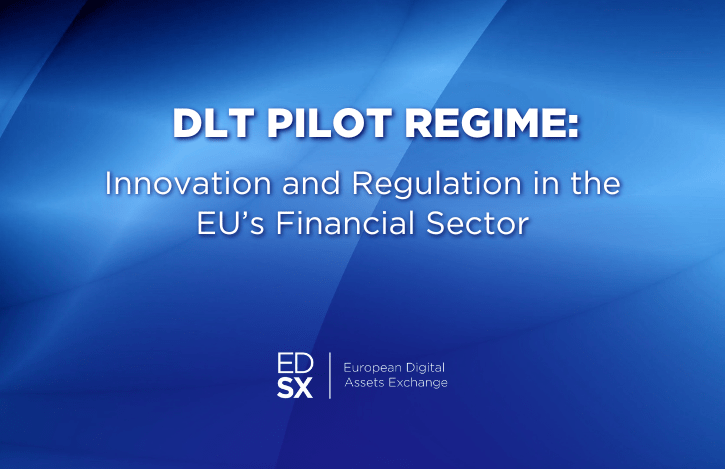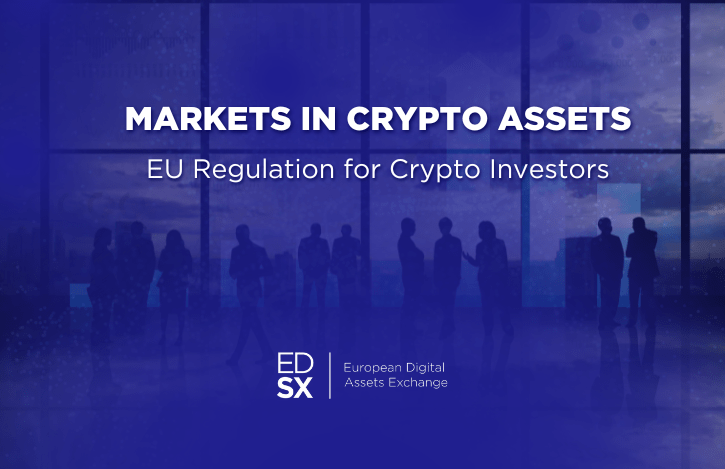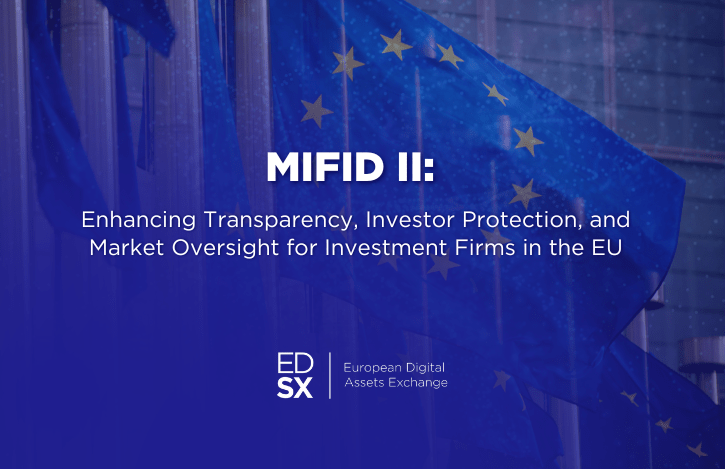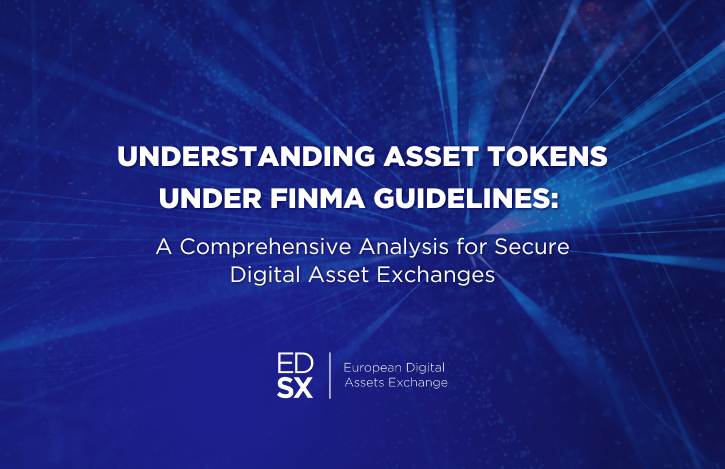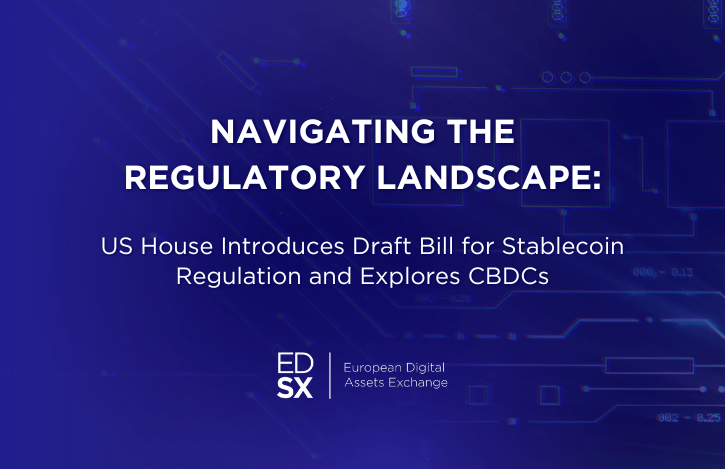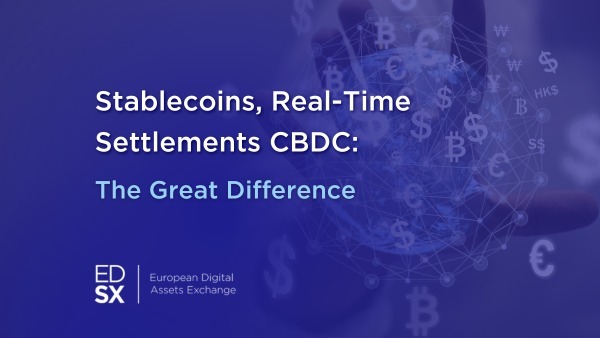Discover how real estate tokenization is revolutionizing the market, unlocking investment opportunities for small-scale investors. Learn about the benefits and challenges of fractional ownership through blockchain technology, and how transparency and efficiency are transforming the real estate industry. Explore the potential and implications of tokenized real estate for the future of property ownership.
EDSX – European Digital Assets Exchange
Author: Mauro Andriott
MiCA’s Impact on Crypto
Explore the groundbreaking Markets in Crypto Assets (MiCA) regulation recently approved by the European Union, designed to safeguard investors and promote stability in the rapidly growing crypto-asset market. This article delves into the key aspects of MiCA, its implications for crypto-asset issuers and service providers, and the challenges and opportunities it presents for the industry’s future in the EU.
Strengthening Investor Protection with MiFID II
The Markets in Financial Instruments Directive (MiFID II) and the Market in Crypto-assets Regulation (MiCA) have significantly transformed the regulatory landscape for crypto assets in the EU. These frameworks prioritize investor protection, transparency, and prudential requirements, ensuring a more accountable and secure financial market environment for digital assets.
Read this article to learn more about how MiFID II and MiCA are changing the way crypto assets are regulated in the EU, and how these fr
Asset Tokens and FINMA Guidelines
Asset tokens are a type of digital asset that represents an underlying asset, such as a company, real estate, or a financial instrument. In Switzerland, asset tokens are regulated as securities by FINMA, which means that they must comply with a number of requirements, including the provision of comprehensive information to investors and the implementation of robust AML procedures. This article provides a comprehensive overview of asset tokens in Switzerland, covering their characteristics, regulatory implic
Landmark Stablecoin Bill Drafted by US House
The draft bill proposes a moratorium on stablecoins backed by other cryptocurrencies and emphasizes oversight and frameworks for stablecoin issuers. It has significant implications for stablecoin investors, who must evaluate the potential impact on their investments and assess underlying asset stability. The article also delves into CBDC exploration, highlighting its potential to reshape the financial landscape. Investors need to stay informed, analyze regulatory developments, and adapt their strategies to
Digital Assets and Commerce
Understand the growth of cryptocurrencies, the emergence of non-fungible tokens (NFTs), and the opportunities presented by decentralized finance (DeFi). The article emphasizes the need for strong governance, cybersecurity measures, regulatory compliance, and risk management when dealing with digital assets. Ultimately, it encourages businesses to embrace this disruptive wave and leverage digital assets to drive growth and innovation while ensuring responsible practices.
Gold Tokenization
Learn how STOs backed by physical gold provide transparency, traceability, liquidity, and fractional ownership, revolutionizing the way investors participate in the gold market. Stay informed on the latest developments in asset tokenization and the growing accessibility of gold investments.
Difference between Stablecoins, Real-Time Settlements and CBDC
Discover the origins, risks, and ongoing projects of central bank digital currencies (CBDCs) in this insightful article. Explore the role of central banks and the future implications for global finance.
Maison Valdigne: un sogno realizzabile
EDSX, il primo mercato secondario compliant in Europa che ha annunciato di recente il lancio del suo primo progetto di tokenizzazione immobiliare in Italia, che sarà disponibile sulla loro piattaforma.
Guida al nuovo decreto Fintech in Italia
Emanato il decreto per l’emissione e la circolazione in forma digitale di strumenti finanziari basato sulla tecnologia a registro distribuito (DLT)

